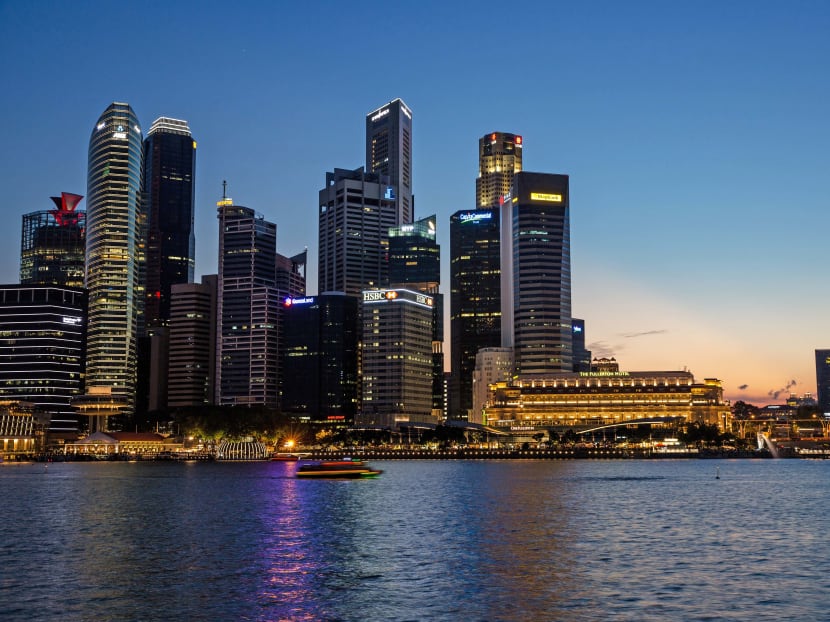Hong Kong more attractive to global talent than Singapore: Report
SINGAPORE — Hong Kong has beaten Singapore for the second consecutive year in a global ranking on attractiveness to talent.

The Republic has narrowed the gap with its regional rival in the 2017 World Talent Report released by the Institute of Management Development’s World Competitiveness Centre. BLOOMBERG file photo.
SINGAPORE — Hong Kong has beaten Singapore for the second consecutive year in a global ranking on attractiveness to talent.
Nevertheless, the Republic has narrowed the gap with its regional rival in the 2017 World Talent Report released on Tuesday (Nov 21) by the Institute of Management Development’s (IMD) World Competitiveness Centre.
Singapore scored 75.63 points against Hong Kong’s 77.9, placing it 13th in the world, one spot behind Hong Kong. Switzerland was placed first in this year’s report, which ranked 63 different economies on their performances in the categories of investment and development, appeal, and readiness.
The first category looks at investment in home-grown talent, such as through education and apprenticeship. The second category assesses the ability of each country to tap into the overseas talent pool, through factors such as cost of living, quality of life, remuneration and tax rates, among other factors. The final indicator measures the availability of skills in a country’s talent pool, by examining its education system, availability of skilled labour and international experience, for example.
This is the fourth edition of the World Talent Report. Last year, Singapore was ranked 15th, six spots behind Hong Kong (9th), after the centre revised previous editions to standardise data and methodology.
Singapore took the 14th spot in 2015 and 18th place in 2014, while Hong Kong was ranked 17th and 19th in 2015 and 2014, respectively.
Based on this year’s report, Singapore’s top strengths include its ability to attract highly-skilled foreign talent, the quality of management education and proportion of foreign students here. Its main weaknesses include cost of living, total public spending on education as a percentage of gross domestic product, and labour force growth rate.
Hong Kong and Singapore are the only Asian economies in the top 15. Both places “compete fiercely” for foreign talent around the world but are facing challenges in the race, said Professor Arturo Bris, who is the director of the World Competitiveness Centre.
“In Singapore, the big concern is the more negative sentiment around its prospects for the future. The high level of indebtedness, the difficulty in supporting investment in education, and an increasing cost of life, all make attracting foreign talent to the city-state much more difficult,” he said. The Republic continues to face push back from Singaporeans when it comes to attracting foreign talent, he added.
Singapore was ranked 2nd for “readiness”, while Hong Kong was in 6th place. For “appeal”, the Republic was placed 17th, six spots behind Hong Kong (11th). In terms of “investment and development”, Singapore came in 41st position, while Hong Kong was ranked 24th.
Mr David Ang, director for corporate services for Human Capital (Singapore), said both Singapore and Hong Kong compete for talent in sectors such as finance and professional services. But unlike Singapore, Hong Kong “does not have an emphasis on oil and gas, or the marine industries,” he said. While Singapore prides itself for security and attractiveness for investment, Hong Kong may be preferred by expatriates for a wider variety of leisure options, such as its proximity to nature and the outdoors, he said.
Both economies are seeing a high demand for professionals in overseas risk management, compliance and cyber-security, said Mr Matthieu Imbert-Bouchard, managing director for Robert Half Singapore. With well-developed healthcare and education systems, as well as highly competitive remuneration packages, Singapore is “in a prime position to position itself as a career destination of choice”, he said.
He noted that while foreign talent is of great importance, Singapore needs “a comprehensive approach” to fill its skills gaps. “(Having) education providers work alongside the wider business community and supported by government-led initiatives, such as SkillsFuture, is key in order to successfully tackle (Singapore’s) talent shortage,” said Mr Imbert-Bouchard.
In April, Singapore was ranked the highest in Asia in attracting and developing talent. The city-state also took the No 2 spot behind Switzerland on the Global Talent Competitiveness Index, published by the French business school, Insead. Hong Kong was not included in the Insead study, which assesses countries’ ability to enable, attract, grow and retain talent, as well as develop global knowledge and vocational and technical skills.






